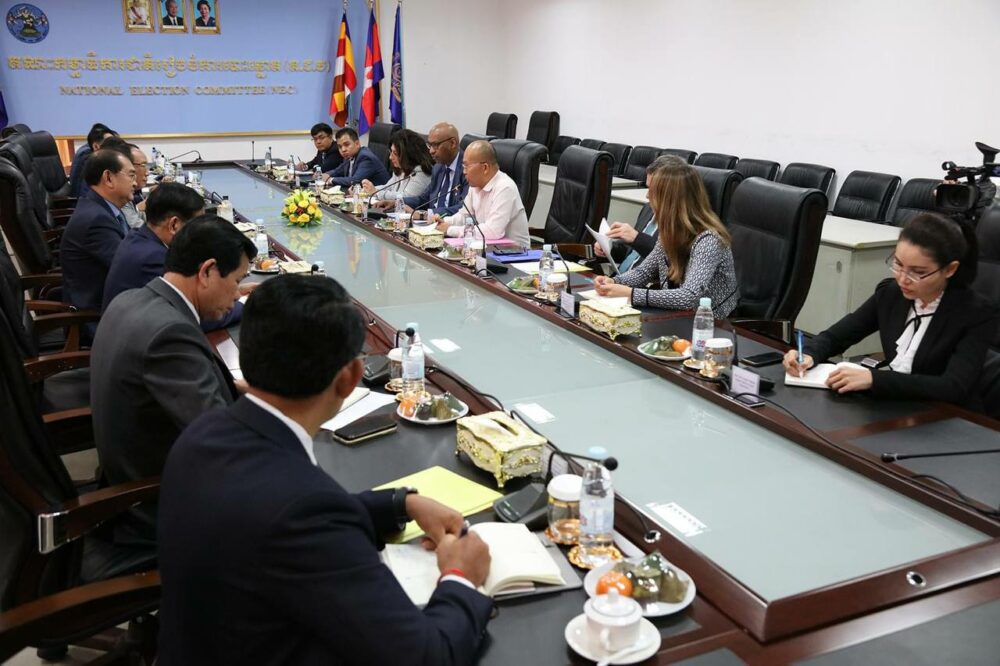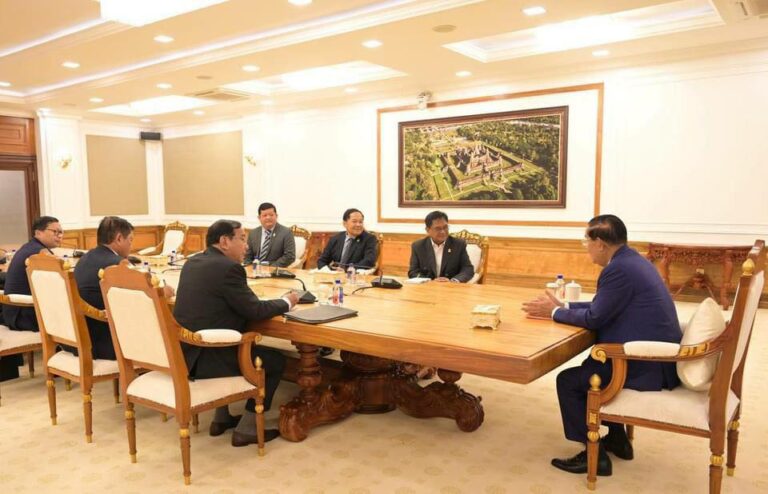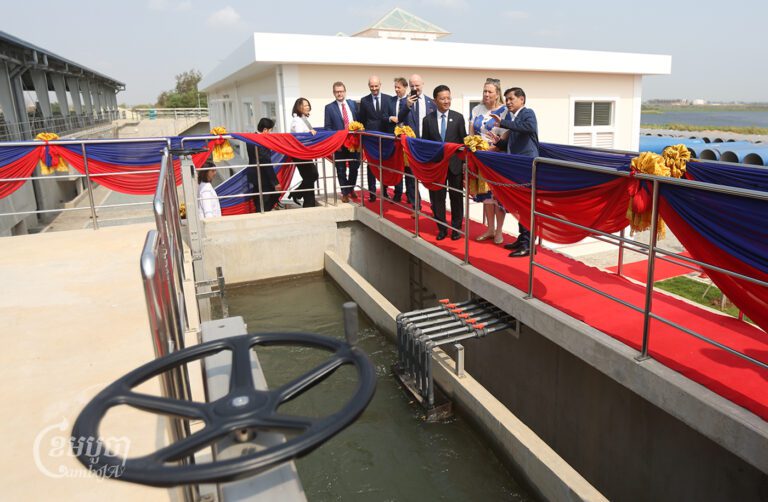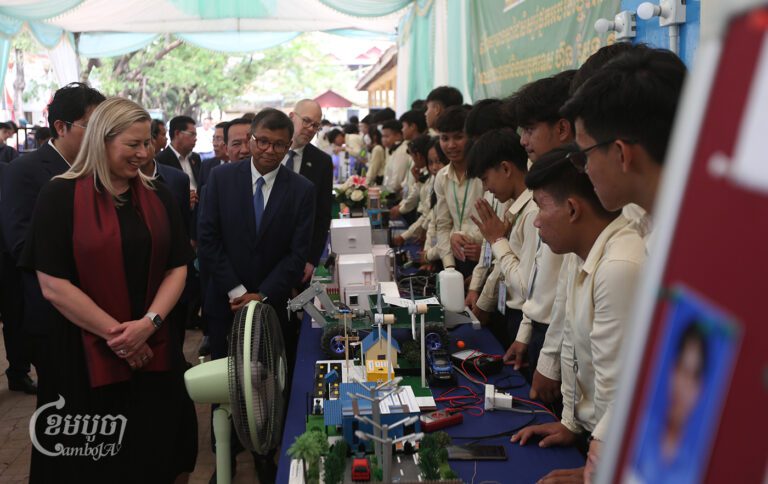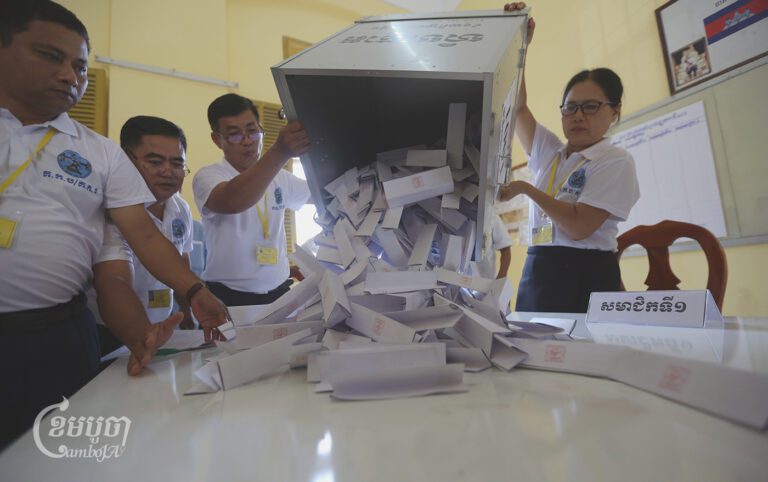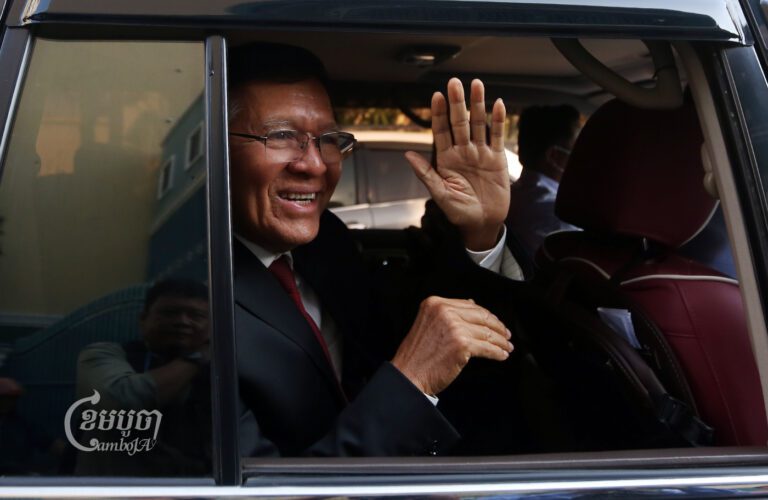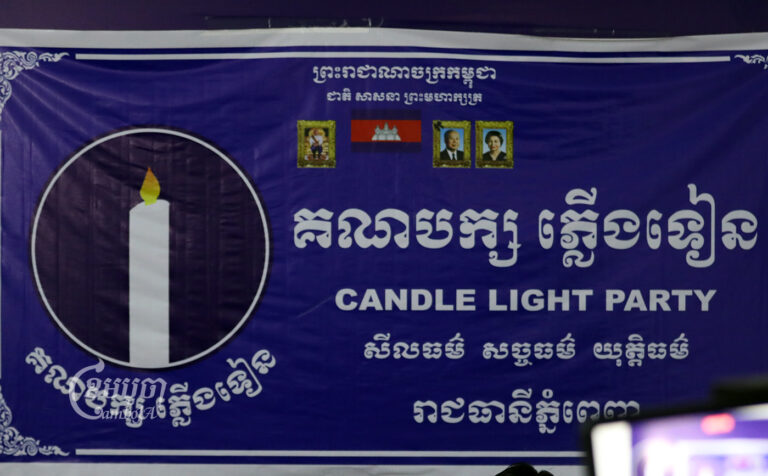A National Election Committee official said Wednesday that more than 100 international observers would monitor the July 23 election, despite criticism of the electoral process from the US and the EU.
NEC spokesperson Hang Puthea said the observers were from countries including Myanmar, Thailand, the Philippines, Singapore, Australia, Russia and Japan, and most would arrive on Friday. He said as of Wednesday 116 international observers were approved and 117 were in review.
Also among the observers are representatives of the International Organization of la Francophonie (OIF), an institution headquartered in France that works to promote French language and democracy globally. The organization faced criticism in 2018 when it nominated Louise Mushikiwabo, a former Rwandan government official who denied rights-abuse claims, as the organization’s secretary general.
The mission is led by Special Adviser to the OIF Secretary-General on Diplomacy and Political Affairs, Ambassador Désiré Nyaruhirira. Other participants include OIF Representative for Asia and the Pacific Edgar Doerig, Laos National Assembly Member Viengvilay Thiengchanxay, OIF Program Officer Artida Minga and Charlotte Souibes, an “electoral expert” according to the organization’s press release.
The Foreign Affairs Ministry invited OIF to monitor the elections, according to Puthea. He said the Cambodian government would be providing OIF’s representatives with meals and transportation to polling locations, while OIF paid for flights and accommodations.
OIF will provide training to election officials if there is a request from the NEC, according to its statement released on Tuesday.
Nyaruhihirira met on Tuesday with the NEC president Prach Chan and discussed the disqualification of the Candlelight Party, said Puthea.
“[OIF representatives] clearly understood that if a [political party] lacks the required documents, they will fail,” Puthea said, referring to the NEC’s stated reason for disqualifying the Candlelight Party. “They want to see [what happens] on the ground and meet with relevant parties, and they will issue a suitable report.”
Two of the country’s leading human rights organizations said they did not plan to meet with the OIF representatives. Licadho Outreach Director Naly Pilorge said Licadho “refused to meet” with the OIF representatives. Soeng Senkaruna Khmer, spokesperson Adhoc, said Adhoc has no plans to meet with any international election observers.
Nyaruhihirira, as well as OIF’s media department and the head of its democracy unit Saidou Kane, did not respond to emailed requests for comment from CamboJA.
When asked if the French Embassy would be involved in any way in this electoral monitoring mission, Noémie Pinta with the French Embassy in Cambodia said in an email, “France does not send any observer for the July 23, 2023 elections.”
The Japanese Embassy told CamboJA via email that “we have no plan to coordinate with NEC for monitoring or observation by the Embassy of Japan or the Government of Japan.”
“Neither the Australian government or Australian Embassy in Cambodia is sending election monitors to observe Sunday’s national election,” wrote the Australian embassy in Cambodia in an email. “Any Australia-based groups or citizens that are observing the election do so in a private capacity, and are not official representatives of Australia.”
Embassies from Myanmar, Thailand, the Philippines, Singapore, and Russia did not respond to requests for comment in time for publication.
The US State Department said in a press release in May that it did not plan to send official observers, stating that the July election was “part of an electoral process that many independent Cambodian and international experts assess is neither free nor fair.”
In regards to countries that chose not to send observers, “They can send or not, it does not affect the value of the election,” Puthea said. “Don’t give foreigners a higher value than your own country.”
“Regardless of the electoral results, it is indisputable that voters will be able to choose one from the 18 contesting parties,” said Ministry of Foreign Affairs spokesperson An Sokhoeun. “This is truly a reflection of political pluralism inherent in Cambodia’s democratic system, encompassing a diverse range of opposing options.”
Ruling CPP spokesperson Sok Eysan, said that international communities have no right to meddle in the internal affairs of Cambodia.
“It is their right whether they come or not and no one will force them,” he said. “Foreigners are just observers and it is an alternative factor. The important thing depends on Cambodian citizens who have the right to access free and fair elections.”
Government spokesperson Phay Siphan said that Cambodia welcomed foreign countries who have sent their observers but “they are not arbitrators giving a score,” for the election.
“It is up to their rights because Cambodia’s election is beneficial for Cambodian people, and the election does not satisfy any [foreign] countries,” he said. “There is no law that allows foreigners a valuation on the election of one country.”
Funcipec spokesperson Nhoeun Raden welcomed the national and international observers monitoring elections in Cambodia.
“We hope that they will help to monitor the upcoming election process and [there will be] fairness for all political parties,” he said.
Grassroot Democratic Party president Yeng Virak said there were two types of international observers: those who have experience with carrying out free and fair elections, and those who do not have a good reputation with holding elections.
“Their reports will be different as they wear different glasses, one will see white and one will see red,” he said.
The role of international observers is important, but even more important are the national observers, independent civil service organizations and observers from different political parties, Virak said.
But more than half of the political parties running in the election, including Virak’s own party, have no party agents registered to observe voting, and 80% of national observers are associated with the ruling CPP, according to the database Kamnotra.
Note: This piece was updated at 10 a.m. ICT on July 20 to reflect the comments of the Australian Embassy in Cambodia.
Note: This story was updated at 7:20 p.m. ICT on July 20 to include comments from Adhoc and Licadho.


